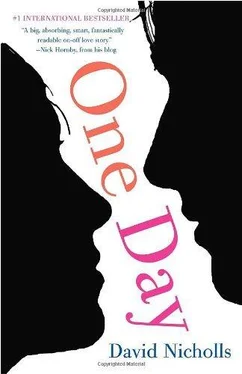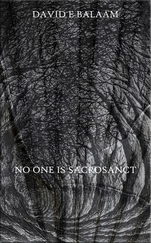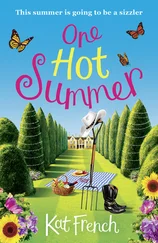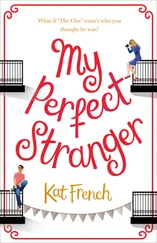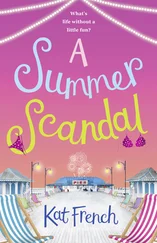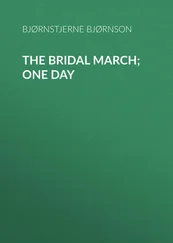David Nicholls - One Day
Здесь есть возможность читать онлайн «David Nicholls - One Day» весь текст электронной книги совершенно бесплатно (целиком полную версию без сокращений). В некоторых случаях можно слушать аудио, скачать через торрент в формате fb2 и присутствует краткое содержание. Жанр: Современная проза, на английском языке. Описание произведения, (предисловие) а так же отзывы посетителей доступны на портале библиотеки ЛибКат.
- Название:One Day
- Автор:
- Жанр:
- Год:неизвестен
- ISBN:нет данных
- Рейтинг книги:4.5 / 5. Голосов: 2
-
Избранное:Добавить в избранное
- Отзывы:
-
Ваша оценка:
- 100
- 1
- 2
- 3
- 4
- 5
One Day: краткое содержание, описание и аннотация
Предлагаем к чтению аннотацию, описание, краткое содержание или предисловие (зависит от того, что написал сам автор книги «One Day»). Если вы не нашли необходимую информацию о книге — напишите в комментариях, мы постараемся отыскать её.
One Day — читать онлайн бесплатно полную книгу (весь текст) целиком
Ниже представлен текст книги, разбитый по страницам. Система сохранения места последней прочитанной страницы, позволяет с удобством читать онлайн бесплатно книгу «One Day», без необходимости каждый раз заново искать на чём Вы остановились. Поставьте закладку, и сможете в любой момент перейти на страницу, на которой закончили чтение.
Интервал:
Закладка:
‘You too, Dexter. Look after yourself, won’t you?’ she says, her voice unsteady, then hangs up. Dexter continues to work through the list, speaking to his sister, his father, his ex-wife, his daughter. The conversations are brief, ostentatiously lighthearted and don’t mention the significance of the day, but the subtext is always the same: ‘I’m fine.’ He phones Tilly Killick, but she is mawkish and over-emotional: ‘But how are you really sweetheart? I mean, really ? Are you by yourself? Are you okay by yourself? Do you want us to come over?’ Irritated, he reassures her, then ends the call as quickly and politely as he can. He calls Ian Whitehead in Taunton, but he’s putting the kids to bed, the little sods, and it’s not a good time. Ian promises he’ll call back in the week and maybe even come down and see him sometime, and Dexter says that it’s a great idea in full know ledge that it will never happen. There’s a general sense, as in all the calls, that the worst of the storm has passed. Dexter will probably never speak to Ian Whitehead again and this is fine too, for both of them.
He eats supper with the television on, hopping channels and restricting himself to the solitary beer that came free with the delivery. But there’s something saddening about eating alone, hunched over on the sofa in this strange house and for the first time that day he feels a rush of despair and loneliness. These days grief seems like walking on a frozen river; most of the time he feels safe enough, but there is always that danger that he will plunge through. Now he hears the ice creak beneath him, and so intense and panicking is the sensation that he has to stand for a moment, press his hands to his face and catch his breath. He exhales slowly through his fingers, then rushes into the kitchen and throws dirty plates into the sink with a clatter. He has a sudden overwhelming need to drink, and to keep on drinking. He finds his phone.
‘What’s up?’ says Maddy, concern in her voice.
‘Just a little panic that’s all.’
‘Are you sure you don’t want me to come up?’
‘I’m fine now.’
‘I can get a taxi? I can be with you in—’
‘No, really. I’d rather be alone.’ He finds that the sound of her voice is enough to calm him, and he reassures her once more then says goodnight. When he is sure that there is no conceivable reason for anyone to call him back, he turns the phone off, draws the blinds, goes upstairs and begins.
The spare bedroom contains nothing but a mattress, an open suitcase and seven or eight cardboard boxes, two of which are labelled ‘Emma 1’ and ‘Emma 2’ in her own handwriting in thick black marker pen. The last of Emma’s possessions from his flat, the boxes contain notebooks, letters, wallets of photographs, and he carries them down to the living room and spends the rest of the evening unpacking them, sorting the meaningless ephemera — ancient bank statements, receipts, old take-away menus, all of which he stuffs into a black bin-liner — from the stuff he will send to her parents, and the items he would like to keep for himself.
The process takes some time, but is carried out in an entirely dry-eyed, pragmatic way, and he stops only occasionally. He avoids reading the journals and notebooks with their scraps of youthful poetry and plays. It seems unfair — he imagines Emma wincing over his shoulder or scrambling to knock them from his hand — and instead he concentrates on the letters and photographs.
The way the material has been packed means that he works through it in reverse chronological order, digging back through the strata, starting with their years together as a couple, back through the Nineties and eventually, at the bottom of box 2, into the Eighties. First there are dummy covers from the ‘Julie Criscoll’ novels, correspondence with her editor Marsha, press cuttings. The next layer reveals postcards and photos of Paris, including a snap of the famous Jean-Pierre Dusollier, dark-skinned and very handsome, the one that got away. In an envelope with Metro tickets, folded menus, a rental agreement in French, he stumbles on something that’s so startling and affecting that he almost drops it on the floor.
It’s a Polaroid, taken in Paris during that summer, of Emma lying naked on a bed, legs crossed at the ankle, her arms stretched languidly above her head. The photo was taken on a drunken, amorous evening after watching Titanic in French on a black and white TV, and even though he found the photograph beautiful, she had snatched it from him and insisted that she would destroy it. The fact that she kept the Polaroid and secreted it away should please him, suggesting as it does that Emma liked the photo more than she let on. But it also slams him up against her absence once more, and he has to take a moment to catch his breath. He places the Polaroid back in the envelope and sits in silence to gather himself. The ice creaks beneath him.
He continues. From the late Nineties he finds an assortment of birth announcements, wedding invitations and orders of service, an over-sized farewell card from the staff and pupils of Cromwell Road Comprehensive School and, stuffed in the same envelope, a series of letters from someone called Phil which are so sexually fixated and pleading that he quickly folds them up and stuffs them back into the envelope. There are flyers from Ian’s comedy-improv nights and some tedious paperwork from solicitors concerning the purchase of the flat in E17. He finds a selection of witless picture postcards that he sent while travelling in the early Nineties — ‘Amsterdam is MAD’, ‘Dublin ROCKS’. He is reminded of the letters he got in return, wonderful little packets of pale blue air-mail paper that he re-reads occasionally, and is embarrassed afresh by his callow twenty-four-year-old self: ‘VENICE COMPLETELY FLOODED!!!!’. There’s a copy of the photostat programme of ‘Cruel Cargo — a play for young people by Emma Morley and Gary Cheadle’ and then old essays, dissertations on ‘Donne’s Women’ and ‘Eliot and Fascism’, a pile of postcard reproductions marked with the tiny holes from the pin-boards of student houses. He finds a cardboard tube and in it, rolled up tight, Emma’s graduation certificate, untouched, he imagines, for nearly twenty years. He verifies this by looking at the date — 14 July 1988. Eighteen years ago yesterday.
In a torn paper wallet he finds the graduation photographs and flicks through them without any great nostalgia. Because the photos were taken by Emma herself she barely features in them, and he has forgotten many of the other students anyway; she was part of a different crowd in those days. Still, he is struck by the youth of the faces and also by the fact that Tilly Killick has the power to annoy him, even in a photo at a distance of nineteen years. A snap of Callum O’Neill, skinny and self-satisfied, is swiftly torn in two and plunged deep into the bin-bag.
But at some point she must have handed the camera to Tilly, because there is finally a sequence of Emma by herself, pulling mock-heroic faces in mortar board and gown, her spectacles perched bookishly on the end of her nose. He smiles, then gives a groan of amused shame as he finds a photo of his old self.
He is pulling an absurd male model’s face, sucking in his cheekbones and pouting while Emma wraps one arm around his neck, her face close to his, eyes wide, one hand pressed to her cheek as if star-struck. After this photo was taken they had gone to the graduation tea-party, the pub and then to the party at that house. He can’t remember who lived there, only that the house was packed and virtually destroyed, the party spilling out onto the street and the back garden. Hiding from the chaos, they had found a spot on a sofa in the living room together and stayed rooted there all evening. This was where he had kissed her for the first time. He examines the graduation photo once again, Emma behind thick black frames, her hair a bottle red and badly cut, a little plumper in the face than he remembers her now, mouth split in a wide smile, her cheek pressed to his. He puts the photo to one side, and looks at the next.
Читать дальшеИнтервал:
Закладка:
Похожие книги на «One Day»
Представляем Вашему вниманию похожие книги на «One Day» списком для выбора. Мы отобрали схожую по названию и смыслу литературу в надежде предоставить читателям больше вариантов отыскать новые, интересные, ещё непрочитанные произведения.
Обсуждение, отзывы о книге «One Day» и просто собственные мнения читателей. Оставьте ваши комментарии, напишите, что Вы думаете о произведении, его смысле или главных героях. Укажите что конкретно понравилось, а что нет, и почему Вы так считаете.
